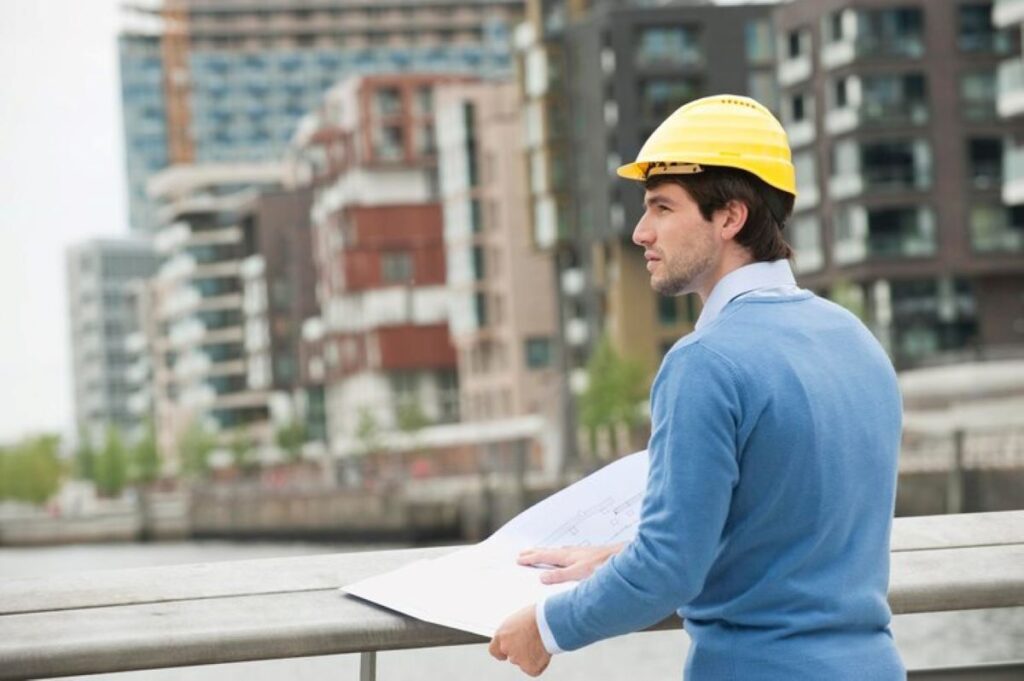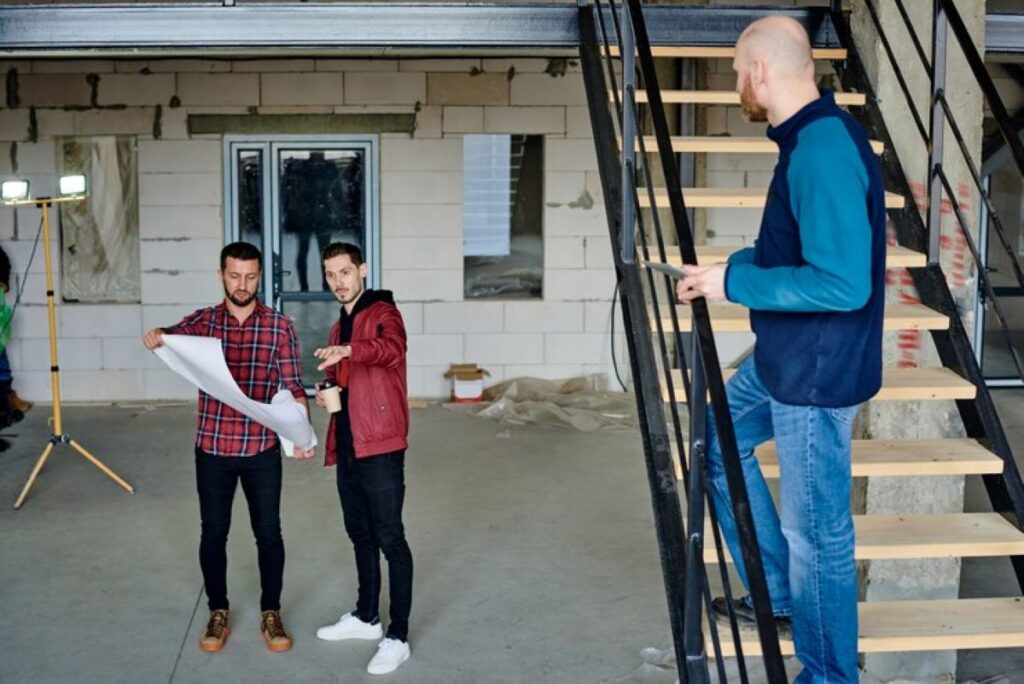Accurate land surveys are crucial for successful property development and construction projects in Sydney. They provide essential measurements and assessments of spatial data, offering vital information about property boundaries, terrain features, and existing infrastructure.
Sydney surveyors play a key role in delivering precise land measurements through:
- Boundary Determination – Establishing exact property lines and corners
- Topographic Mapping – Documenting terrain features and elevation changes
- Infrastructure Location – Identifying positions of utilities and structures
- Site Planning – Providing data for construction and development layouts
The Role of Technology in Modern Surveying
Modern surveying combines cutting-edge technology with professional expertise to achieve millimetre-precise results. From advanced GPS systems and 3D laser scanning to sophisticated data analysis software, Sydney surveyors utilise state-of-the-art tools alongside their technical knowledge.

The Importance of Accuracy in Land Surveys
The accuracy of these surveys directly impacts:
- Property transactions and legal compliance
- Construction planning and execution
- Infrastructure development
- Risk management and dispute prevention
This comprehensive guide explores how Sydney’s professional surveyors ensure the highest standards of accuracy in land surveying projects.
Advanced Technology Used by Sydney Surveyors
Modern land surveying demands cutting-edge technology to achieve millimetre-precise measurements. Sydney surveyors employ an advanced technological arsenal to deliver accurate results:
1. GPS Surveying Systems
- Real-Time Kinematic (RTK) GPS technology provides centimetre-level accuracy
- Multiple satellite constellations ensure reliable positioning even in challenging environments
- Base stations across Sydney enable instant corrections for enhanced precision
2. Robotic Total Stations
- Automated tracking and measurement capabilities
- Angular accuracy within 1 second of arc
- Integrated imaging systems for detailed site documentation
- Remote operation reduces human error in data collection
3. Aerial Drone Technology
- High-resolution photogrammetry captures comprehensive site imagery
- LiDAR-equipped drones penetrate vegetation for ground-level data
- Rapid surveying of large or difficult-to-access areas
- Creation of detailed orthomosaic maps
4. GIS Mapping Solutions
- Advanced spatial analysis tools for data interpretation
- Integration of multiple data layers for comprehensive site understanding
- Custom mapping solutions for specific project requirements
- Real-time data processing and visualisation
5. 3D Laser Scanning
- Point cloud generation with sub-millimetre accuracy
- Complete capture of complex structures and terrain
- Rapid data collection reducing site time
- Creation of detailed 3D models for design and planning
These technological solutions work together to create detailed, accurate surveys. The combination of ground-based and aerial systems ensures comprehensive data collection from multiple perspectives, while advanced processing software transforms raw measurements into valuable insights for construction and development projects.
See Also : The Role of Registered Surveyors in Land Development
Structured Surveying Process for Accuracy
A systematic surveying process forms the backbone of accurate land measurements in Sydney. The structured workflow encompasses multiple critical stages designed to maintain precision and reliability throughout the project.
1. Reference Point Establishment
- Primary control points serve as the foundation for all subsequent measurements
- Strategic placement of secondary control points across the site
- Verification of existing survey marks and monuments
- Cross-referencing with historical survey data for consistency
2. Precise Measurement Protocols
- Multiple angle readings from different station setups
- Repeated distance measurements under varying conditions
- Height difference calculations through differential levelling
- Real-time error detection and adjustment protocols
3. Documentation Requirements
- Detailed field notes recording weather conditions and equipment calibration
- Digital data logs from all measuring instruments
- Photographic evidence of survey marks and site conditions
- Sketches and diagrams illustrating key survey features
4. Quality Assurance Framework
- Regular equipment calibration and maintenance checks
- Independent verification of critical measurements
- Automated error detection through software algorithms
- Cross-validation between different measurement methods
The implementation of redundant measurement systems helps identify potential discrepancies early in the process. Each measurement undergoes rigorous checking against established standards, with any variations beyond acceptable tolerances triggering immediate investigation and correction.
A comprehensive data review process ensures all collected information meets the required accuracy specifications. This includes checking for mathematical consistency, spatial relationships, and alignment with existing survey records. The systematic approach to quality control minimises the risk of errors propagating through to final survey deliverables.
Professional Expertise Ensuring Reliability
Accurate land surveys depend on the skills of registered surveyors who meet strict education and licensing standards. These professionals complete a four-year bachelor’s degree in surveying, gain practical experience, and pass professional board exams to become registered.
Key Qualifications of Registered Surveyors:
- Advanced mathematical and geometric principles
- Spatial data interpretation
- Property law understanding
- Technical documentation expertise
- Project management skills
Subsurface utility locating is an essential part of modern surveying. Registered surveyors use electromagnetic detection and ground-penetrating radar to find underground infrastructure:
- Water and sewage pipes
- Electrical cables
- Gas lines
- Telecommunications networks
Client feedback is crucial for improving services in the surveying industry. Professional surveyors have established feedback systems:
- Post-project evaluations
- Regular client consultations
- Performance metrics tracking
- Service quality assessments
Professional development is vital for maintaining high standards in land surveying. Registered surveyors engage in:
- Industry conferences
- Technical workshops
- Software training sessions
- Professional association events
The combination of formal qualifications, practical experience, and ongoing education allows Sydney surveyors to provide accurate results. Regular updates to surveying methods and technology skills ensure they stay aligned with industry best practices and changing client needs.
Working with specialists in related fields enhances the accuracy of survey results. Teams often include:
- Geotechnical engineers
- Environmental scientists
- Planning consultants
- Construction professionals
This collaborative approach to professional expertise establishes a strong foundation for dependable land surveying services throughout New South Wales and Queensland.

Legal Compliance and Risk Mitigation in Land Surveys
Land surveying in Sydney requires strict adherence to legal requirements and technical standards to prevent boundary disputes and ensure compliance with local regulations. Professional surveyors act as interpreters of complex legal documents, including:
- Title deeds
- Historical survey records
- Registered plans
- Easement documentation
- Council zoning regulations
The interpretation of these documents demands expertise in both legal terminology and technical surveying principles. Sydney surveyors analyse historical records alongside current measurements to establish accurate property boundaries and resolve potential disputes.
Permit Acquisition Process
Professional surveyors assist clients through the permit application process by:
- Preparing detailed survey reports meeting council requirements
- Identifying zoning restrictions and setback requirements
- Documenting existing site conditions
- Providing technical drawings for development applications
Risk Management Strategies
Sydney surveyors implement robust risk management practices:
- Regular calibration of equipment to maintain measurement accuracy
- Cross-referencing multiple data sources to verify boundary positions
- Maintaining detailed records of all survey activities
- Conducting thorough site investigations to identify potential hazards
The expertise of registered surveyors in legal compliance extends to providing expert testimony in boundary disputes. Their detailed documentation and adherence to surveying standards create legally defensible records that protect client interests and support dispute resolution processes.
Local councils rely on accurate survey data to assess development applications and ensure compliance with planning regulations. Professional surveyors work closely with council officers to address technical requirements and facilitate smooth approval processes.
Contribution to Sustainable Development Through Accurate Surveys
Land surveying plays a vital role in environmental conservation and sustainable development. Sydney surveyors integrate comprehensive environmental impact assessments into their surveying processes to safeguard natural resources and support eco-friendly development practices.
Key Environmental Considerations in Land Surveys:
- Habitat Protection – Detailed mapping of sensitive ecological areas, wildlife corridors, and protected species habitats
- Vegetation Analysis – Documentation of significant trees, native plant communities, and areas requiring preservation
- Water Resource Management – Identification of waterways, drainage patterns, and flood-prone zones
- Soil Assessment – Analysis of soil conditions, erosion risks, and contamination levels
The environmental assessment process involves collecting precise spatial data to create detailed environmental management plans. These plans guide developers and stakeholders in implementing sustainable construction practices while minimising ecological impact.
Sydney surveyors utilise specialised techniques to conduct thorough environmental assessments:
- Remote Sensing – Analysis of satellite imagery to track environmental changes
- Topographic Mapping – Creation of detailed terrain models to understand natural drainage patterns
- GIS Integration – Layering of environmental data with survey information for comprehensive analysis
- 3D Visualisation – Development of models showing environmental impact scenarios
This data-driven approach enables informed decision-making about land use while protecting natural resources. The environmental assessments also support compliance with local council regulations and environmental protection laws.
Sydney surveyors work closely with environmental scientists and ecological consultants to ensure their assessments meet current sustainability standards and best practices. This collaborative approach helps create development solutions that balance progress with environmental preservation.
Effective Client Communication and Service Quality in Land Surveying Industry
Clear communication is crucial for successful land surveying projects. Sydney surveyors use structured communication methods to ensure transparency and build trust throughout the project.
Key Communication Points:
- Initial Consultation: In-depth conversations to understand specific project needs, limitations, and desired results
- Project Planning: Regular updates on survey methods, timelines, and resource allocation
- Field Operations: Immediate reporting of site conditions, challenges, and progress
- Data Analysis: Technical briefings on survey findings and their significance
- Documentation: Detailed reports with clear explanations of technical data
Professional surveyors prioritise accessibility and responsiveness through:
- Dedicated project managers for single-point contact
- Digital platforms for instant document sharing
- Regular site meetings with stakeholders
- Multiple communication options
- Quick response to queries and concerns
Quality Assurance Measures:
To maintain high service quality, quality assurance measures are implemented. These include:
- Client feedback integration at every project stage
- Customised reporting formats based on client preferences
- Regular quality reviews of deliverables using specific quality metrics
- Documentation of all client interactions
- Training staff in effective communication skills
Sydney surveying firms keep detailed communication records to monitor project progress and ensure all stakeholders are informed. This systematic approach to client communication directly affects service quality and project results.
The combination of modern communication tools with traditional surveying expertise creates a collaborative environment where clients feel valued and understood. This client-focused approach has proven essential in delivering accurate land surveys that meet specific project requirements, supported by an overarching quality management system that ensures consistent service delivery.

Conclusion
Accurate land surveys in Sydney are made possible by a combination of advanced technology, careful processes, and skilled professionals. Registered surveyors in Sydney use state-of-the-art GPS systems, drones, and 3D modelling techniques while following strict quality control measures. This thorough method guarantees precise measurements and dependable data for property developments, construction projects, and infrastructure initiatives.
The influence of accurate land surveys goes beyond individual projects; it also plays a role in shaping sustainable urban development and infrastructure planning throughout New South Wales. By paying close attention to detail, strictly following regulations, and committing to professional excellence, Sydney surveyors provide long-lasting value to both clients and communities.
Sydney’s surveying professionals are vital partners in successfully carrying out projects – from residential developments to significant infrastructure undertakings – due to their combination of technical accuracy, knowledge of regulations, and client-focused service delivery. This integrated approach continues to set the benchmark for land surveying excellence in Sydney’s ever-changing property and construction industries.
